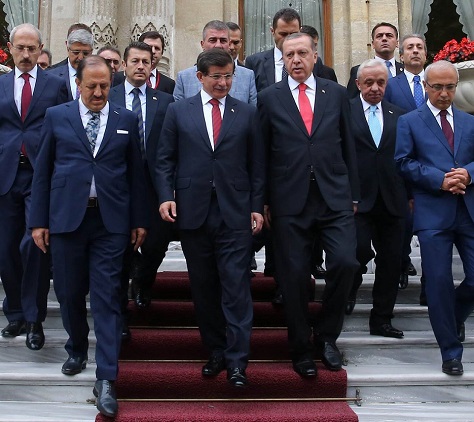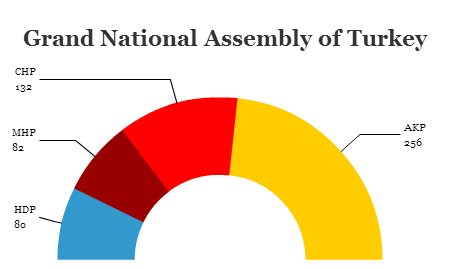Since the initial June parliamentary elections in Turkey, the country has weathered more instability than at any other period since the Islamist Adalet ve Kalkınma Partisi (AKP, the Justice and Development Party) came to power.![]()
On the eve of fresh elections this weekend, consider all that’s happened since the June elections when the AKP lost its parliamentary majority:
- Coalition talks failed between prime minister Ahmet Davutoğlu and the two secular opposition parties that were most likely to support an AKP-led government.
- Since 2011, the value of the lira has fallen by 50% against the U.S. dollar and Turkey’s once galloping economic development is slowing — to just a projected 3.2% in 2015.
- A suicide bombing on July 20 in the southern city of Suruç killed 33 people. In response, Kurdish forces attacked Turkish police after Turkish officials downplayed the need to secure areas of southeastern Turkey that are most heavily populated by the Kurdish minority.
- Turkish forces responded to the Suruç attack by joining the military effort against ISIS/Islamic State/Daesh, the Sunni radical group that has extended its ‘caliphate’ across eastern Syria and western Iraq.
- Turkish forces also used the Suruç attack to wage a much more aggressive attack against the militant Partiya Karkerên Kurdistanê (PKK, Kurdistan Workers’ Party), escalating a conflict that had previously been working its way toward a peaceful settlement between Turkey’s government and the PKK’s jailed leader, Abdullah Öcalan.
- Another suicide bombing on October 10 in the Turkish capital of Ankara at a peace rally became the deadliest terrorist attack in modern Turkish history, further polarizing Turkish voters who alternative pointed fingers at ISIS, the government and the PKK.
- Critical media voices have been harassed or prosecuted by a government whose record on press freedom was already deteriorating.
In the June elections, the AKP won just 256 seats in the Türkiye Büyük Millet Meclisi (Grand National Assembly), 20 short of a majority. It was the first time since the AKP first came to power in the 2002 elections that it failed to win a majority, scuttling Recep Tayyip Erdoğan’s to consolidate power in the Turkish presidency after won Turkey’s first-ever direct election to the mostly ceremonial office last summer.
The AKP fell so low because, for the first time in Turkish history, a pro-Kurdish party, the leftist Halkların Demokratik Partisi (HDP, People’s Democratic Party), ran for election on a unified list and won enough support to meet the 10% electoral hurdle for winning seats in the National Assembly. With the HDP taking 80 seats, it made it that much more difficult for the AKP to reach an absolute majority. Continue reading A deadlocked assembly could mean a third election in Turkey

